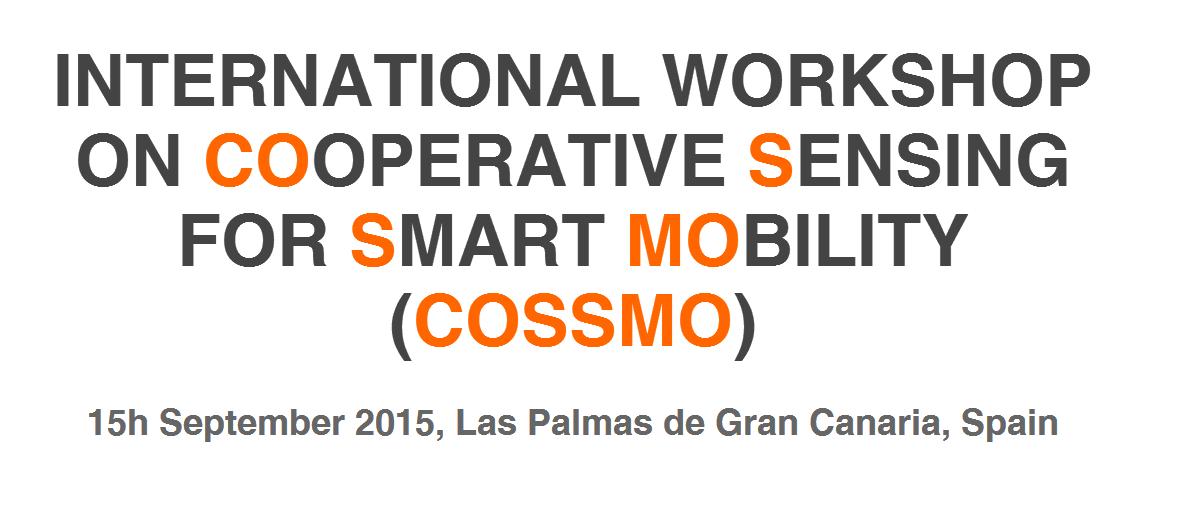The organization of the event COSSMO 2015 – International Workshop on Cooperative Sensing for Smart Mobility, invited António Casimiro to be one of the two keynote speakers of the event that will occur in September 15th, at Las Palmas de Gran Canaria, Spain. António Casimiro presentation with the title “Dependability challenges on the way to autonomous and cooperating vehicles” will address issues related with LaSIGE’s research line “Timeliness and Adaptation in Dependable Systems”.
COSSMO 2015 will be co-located with the event IEEE ITSC 2015 – 18th International IEEE Conference on Intelligent Transportation Systems, with the motto Smart Mobility for Safety and Sustainability.
Keynote title:
Dependability challenges on the way to autonomous and cooperating vehicles
Antonio Casimiro, University of Lisbon.
Abstract:
There is a clear trend in including more autonomous functions in new car models, many of which aiming at improving safety aspects. This is made possible by improvements in computing and sensor technologies, which continuously become cheaper, smaller, faster and more reliable, thus supporting the deployment of complex control solutions that bring the desired autonomy whilst preserving safety. However, despite these advances, the known examples of fully autonomous cars is still very limited, and these vehicles either operate in very controlled environments, have performance restrictions or requires massive amounts of technology that render the solution expensive. The situation becomes even more challenging when trying to exploit communication for cooperation purposes. This talk will address some of the challenges in the way to autonomous and cooperating vehicles, with particular focus on those that may impair dependability aspects such as safety and security. These challenges require solutions at several levels of the design and development process. The talk particularly describes possible approaches that have been developed in the context of the FP7 project KARYON, concerning the architectural design, handling temporal and value uncertainties in sensor data, and achieving consistency of views in the execution of cooperative functions. These will be illustrated with some example applications that were developed in the project.
